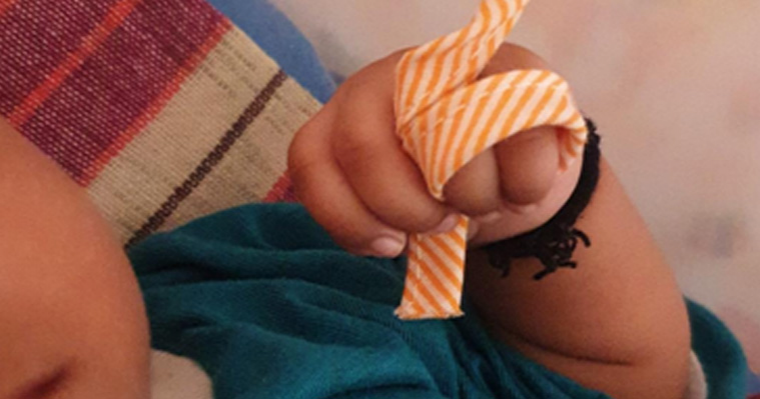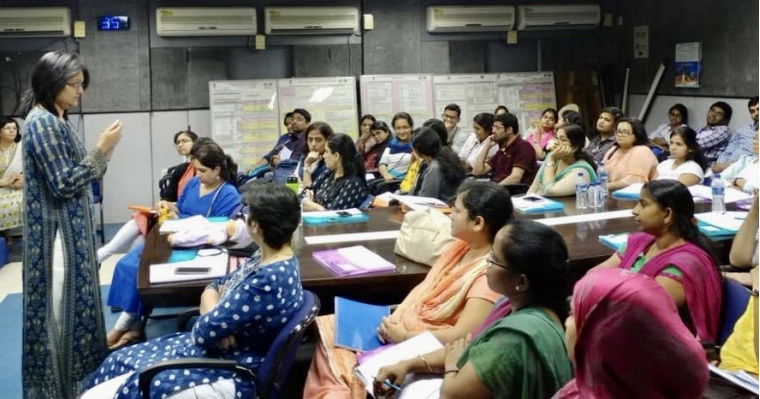In accordance with the theme of World Breastfeeding Week 2022, August 1-7
Why does breastfeeding fail? Why are so many women unable to achieve their breastfeeding goals? Have we as women lost the art and the capacity of nurturing our baby at our bosom? Well not true, but sadly most women are made to believe so in the current healthcare system, where we have lost faith in our body’s ability to give birth naturally and also to breastfeed successfully.

This article is not to lament about the lack of knowledge that most healthcare professionals have about the importance and management of breastfeeding. It is not to criticise the ignorance of the modern society that thinks it is OK not to breastfeed. It is about finding solutions and supporting parents in doing what’s best for their baby’s long-term health. And the mother’s health too!
Through my twenty odd years working in this field, supporting parents in their journey of pregnancy through parenthood, I have realized that education and spreading awareness among all sections of the society, are the only ways to ensure that breastfeeding gets off to a good start and challenges can be managed in a way that supports breastfeeding.
Let us talk about normal birth which has a huge impact on how the breastfeeding journey begins. For a good start, try to have a natural childbirth free from medications and interventions. Prepare for birth and breastfeeding during your pregnancy by taking a good antenatal class. Eat and drink freely through labour and keep moving, not confined to bed. Vertical, gravity-aided birthing positions help in the progress of labour. Remember that medications or pain relief that you may seek will impact labour progress and your baby’s behaviour after birth. Immediate skin-to-skin after birth and initiation of breastfeeding by breast crawl has immense benefits and should be routinely practiced.

The mother and the baby should always be kept in close proximity, preferably skin-to-skin and the baby should be allowed to breastfeed freely as many times as desired, without any time restriction. The maternity staff must encourage and enable exclusive breastfeeding. The mother often needs help with latching and positioning, and to ensure good milk transfer at the breast. Hence skilled lactation support must be available at all birthing set ups and maternity hospitals. Maternity staff including all doctors and nurses must undergo training in skills for basic lactation management. Best way is to seek a Baby-Friendly Hospital Certification which will ensure that the maternity set up is ready to support mothers in breastfeeding as per the international guidelines of BFHI.
During emergencies and special medical circumstances as well, breastfeeding can save lives and prevent complications. Where direct breastfeeding is temporarily not possible, the hospital staff should have the skills to teach the mother how to express her own milk for her baby and maintain her milk supply, while trying to put the baby to breast as early as medically possible.

Refer mothers to support groups in the community such as La Leche League, BPNI Maharashtra and also to a skilled lactation consultant or counsellor at the time of discharge. So later if any problems arise while feeding, they can get immediate help to rectify the situation and continue breastfeeding exclusively for the first six months as per UNICEF and WHO guidelines.
Families and workplaces also need to be breastfeeding friendly. At home the new mother should be well looked after and encouraged to continue breastfeeding in the face of challenges by seeking right help at the right time. Maternity leave of at least six months as per government norms, breastfeeding breaks, or time and place to pump milk should be granted to all mothers, with creches to care for the baby at the workplace. Breastfeeding in public should not only be accepted but welcomed and encouraged. Only then can the mother achieve her goal of continuing to breastfeed her baby for two years or beyond, the scientific, evidence-based recommendation which most people including doctors do not take seriously.

Reading all this do you realize how many stake holders are there in the success of breastfeeding?!! The mother definitely can’t do it all alone. It takes a village and is a collective societal responsibility. As a doctor and a lactation consultant, I admit that the medical fraternity needs to play a pivotal role in changing the dismal state of breastfeeding in our country, to ensure a healthy future for our children. We also need the parents to start asking questions and demanding answers from their health care providers, employers, and the government to bring about a change in the way breastfeeding is dealt with today.
I believe that all mothers can breastfeed. Most mothers want to. Let’s all do what it takes. Let’s give our children the best healthy start to life.
Happy World Breastfeeding Week- August 1-7, 2022!





















